The United States, which is a vast nation that encompasses diverse landscapes and climates, has suffered immense power from natural disasters throughout its history. From hurricanes that unleashed fury on coastlines to earthquakes that reshaped cities, these events have left indelible marks on the nation's memory and tested the resilience of its communities.
Ranking the "worst" natural disasters that have struck the United States is inherently subjective, as the impact can vary greatly depending on factors like death toll, and economic, and long-term social consequences. However, by examining certain historical events through the lens of their devastation and damage cost, we can gain a deeper understanding of the profound challenges posed by nature's wrath.
What Is The Total Economic Cost Of Natural Disasters In The US, Both Past And Present?
The United States has suffered 373 weather and climate disasters since 1980 and the total staggering cost of these disasters exceeds $2.655 trillion.
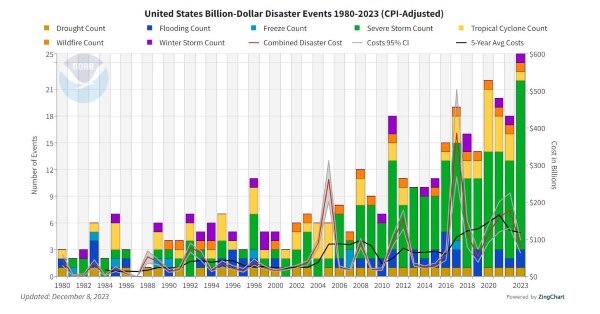
Source: NOAA
Moreover, 2023 has been a year of unparalleled natural disasters in the U.S., with 25 billion-dollar events already wreaking havoc across the nation. These extreme weather and climate catastrophes, with the year coming to an end, have caused immense financial losses, displaced communities, and claimed lives. The National Oceanic and Atmospheric Administration (NOAA) has released an alarming report that underscores the urgent need for action to combat the growing threat of climate change.
The NOAA mentioned: “In 2023 (as of December 8), there have been 25 confirmed weather/climate disaster events with losses exceeding $1 billion each to affect United States. These events included 1 drought event, 2 flooding events, 19 severe storm events, 1 tropical cyclone event, 1 wildfire event, and 1 winter storm event.”
What are the Most Expensive Disasters in U.S. History?
Here is the list of the most costliest disasters that have struck the United States:
| Disaster | Estimated Cost | Year |
| Hurricane Katrina | $193 Billion | 2005 |
| Hurricane Harvey | $155 Billion | 2017 |
| Hurricane Ian | $115 Billion | 2022 |
| Hurricane Maria | $111 Billion | 2017 |
| Hurricane Sandy | $85 Billion | 2012 |
| Hurricane Ida | $82 Billion | 2021 |
| Hurricane Irma | $62 Billion | 2017 |
| Hurricane Andrew | $58 Billion | 1992 |
| U.S. Drought/Heat Wave | $52 Billion | 1988 |
| Midwest Flooding | $44 Billion | 1993 |
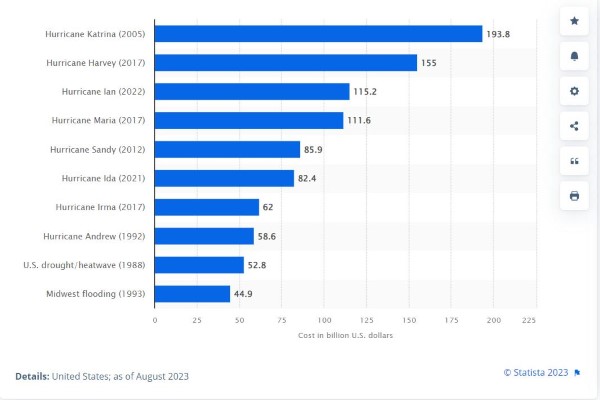
Source: Statista
What Factors Are Considered When Calculating The Cost Of A Disaster in the United States?
The National Centers for Environmental Information (NCEI) tracks and analyses extreme weather events in the U.S. and globally, revealing their massive economic and societal impacts. From temperature trends to flood damage, NCEI paints a historical picture of our planet's climate.
In 2012, NCEI (then NCDC) revised its Billion-dollar Disaster methodology. Experts and consultants helped identify potential biases and data inaccuracies in loss assessments. This led to a published paper and ultimately, more consistent, year-to-year comparisons. Importantly, the research revealed an underestimation of losses, which was corrected in a data reanalysis.
Loss estimates vary in uncertainty depending on event type. For instance, 2019's inland floods and Alaskan wildfires have higher uncertainty due to limited data. Meanwhile, severe storms with widespread insurance coverage have lower uncertainty. NCEI research explores this further, defining cost uncertainty with confidence intervals.
What's Included and Excluded in Billion-dollar Costs?
NCEI uses broad public and private sources to calculate disaster costs. This includes all direct costs – both insured and uninsured – from damage to buildings and infrastructure to agricultural losses and wildfire suppression. Notably, these estimates exclude environmental degradation, healthcare costs, and value of life losses. Therefore, the true cost of weather and climate disasters is likely even higher.
What Was The Most Costly Hurricane In The US?
Hurricane Katrina, which slammed into the United States in 2005, remains the nation's costliest and deadliest natural disaster, racking up $195 billion in losses and leaving a trail of devastation.
1. Hurricane Katrina
Estimated Loss: $193 Billion
Year: 2005
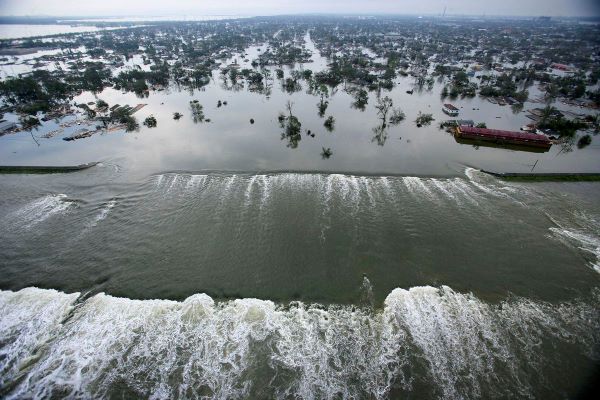
Source: VOX
Hurricane Katrina was a category 5 storm that made landfall in the United States in 2005. It was known to be the costliest natural disaster in American history, causing an estimated $193 billion in damage. Hurricane Katrina also caused over 1,800 fatalities, making it one of the deadliest hurricanes in the country's history.
The National Weather Service mentioned: “Hurricane Katrina (August 2005) became a large and extremely powerful hurricane that caused enormous destruction and significant loss of life. It is the costliest hurricane to ever hit the United States, surpassing the record previously held by Hurricane Andrew from 1992.”
2. Hurricane Harvey
Estimated Loss: $155 Billion
Year: 2017
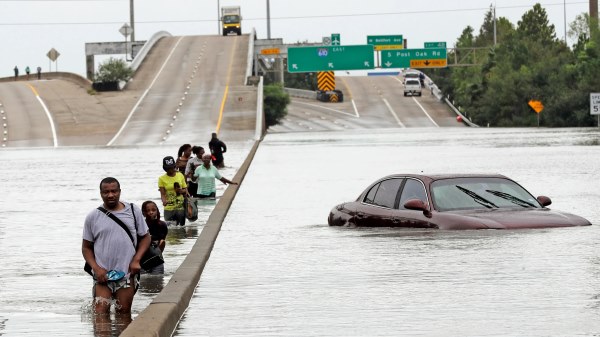
Source: The New York Times
Hurricane Harvey, a colossal storm of 2017, carved a path of destruction across the Texas coast, leaving an indelible mark on history. With wind gusts exceeding 130 mph and relentless rainfall causing catastrophic flooding, it inflicted a staggering $155 billion in damages, ranking as one of the costliest natural disasters in U.S. history. Homes, businesses, and infrastructure crumbled under the deluge, displacing hundreds of thousands and leaving many communities heartbroken.
3. Hurricane Ian
Estimated Loss: $115 Billion
Year: 2022
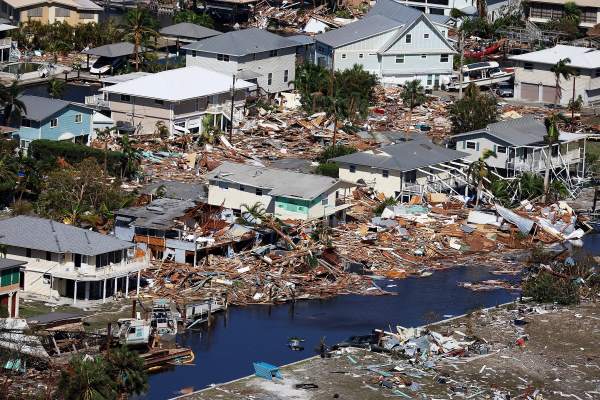
Source: WIRED
In 2022, Hurricane Ian tore through the United States, leaving a trail of destruction and a hefty $115 billion price tag. The storm, one of the deadliest and most expensive in history, slammed into western Cuba before making landfall in Florida as a Category 4 hurricane.
4. Hurricane Maria
Estimated Loss: $111 Billion
Year: 2017
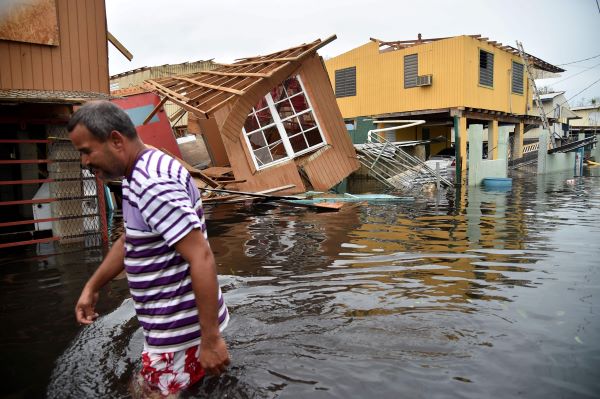
Source: NBC News
Hurricane Maria, a monster storm of 2017, carved a path of destruction through the Caribbean, leaving a particularly devastating mark on Puerto Rico. With winds exceeding 150 miles per hour, it caused widespread infrastructure collapse, power outages that lasted for months, and a staggering estimated loss of $111 billion. The island's fragile ecosystems and communities were left reeling, facing years of recovery from the hurricane's wrath. Maria's impact remains a stark reminder of the vulnerability of the Caribbean to the fury of nature.
5. Hurricane Sandy
Estimated Loss: $85 Billion
Year: 2012
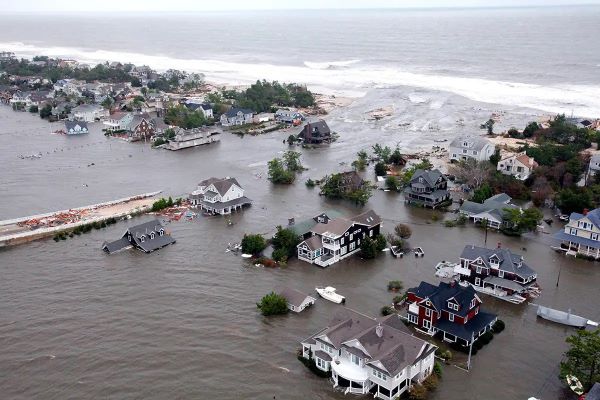
Source: New Scientist
Hurricane Sandy, a colossal storm that pummelled the East Coast in 2012, was a stark reminder of the destructive power of nature. With estimated losses soaring to $85 billion. Packing fierce winds and unleashing a devastating storm surge, Sandy slammed into New York City and New Jersey, flooding vast areas, crippling infrastructure, and leaving millions in the dark. Iconic landmarks like the Statue of Liberty were submerged, and entire communities were reduced to unrecognisable debris.
6. Hurricane Ida
Estimated Loss: $82 Billion
Year: 2021
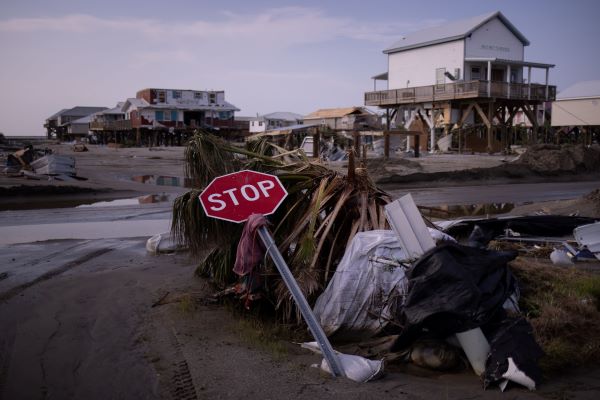
Source: CNBC
In 2021, Hurricane Ida carved a path of devastation, leaving behind a staggering $82 billion in losses. This fierce storm slammed into Louisiana as a Category 4, unleashing destructive winds and catastrophic flooding that ravaged communities and reshaped the landscape.
7. Hurricane Irma
Estimated Loss: $62 Billion
Year: 2017
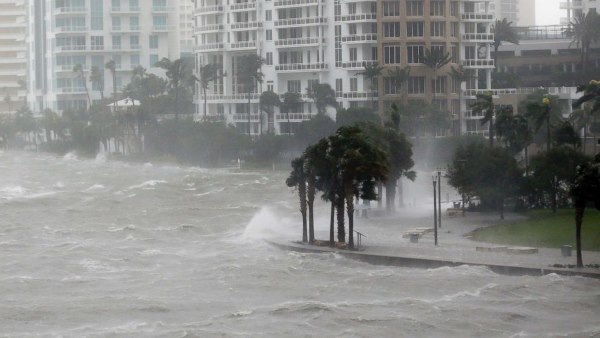
Source: ABC News
Hurricane Irma, was a ferocious Category 5 storm that ripped through the Caribbean and Florida in 2017. Irma's wrath was felt across multiple islands, including Barbuda, St. Martin, and the Virgin Islands, where entire towns were flattened and infrastructure crumbled. In Florida, the storm brought record-breaking storm surges and flooding, causing widespread damage to homes and businesses.
8. Hurricane Andrew
Estimated Loss: $58 Billion
Year: 1992
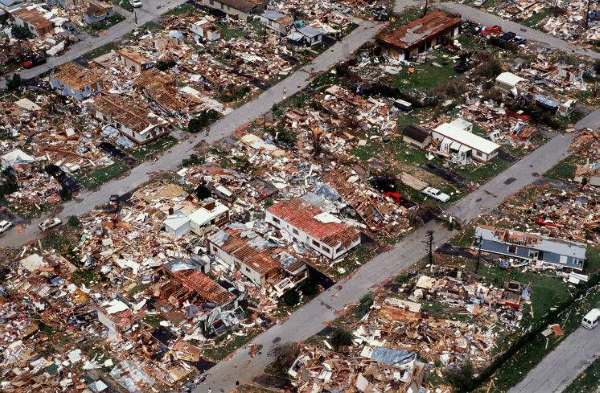
Source: Tampa Bay Times
Andrew's story began subtly, as a mere tropical wave pulsing with warm ocean energy, departing the West African coast on August 14th. Driven by easterly winds, this wispy disturbance embarked on a fateful journey across the Atlantic.
By August 16th, the wave had gathered enough steam to be classified as a tropical depression, a swirling mass of low pressure with sustained winds of 34-38 mph. Just a day later, on August 17th, it intensified into a tropical storm, earning the name "Andrew."
9. U.S. Drought/Heatwave
Estimated Loss: $52 Billion
Year: 1988
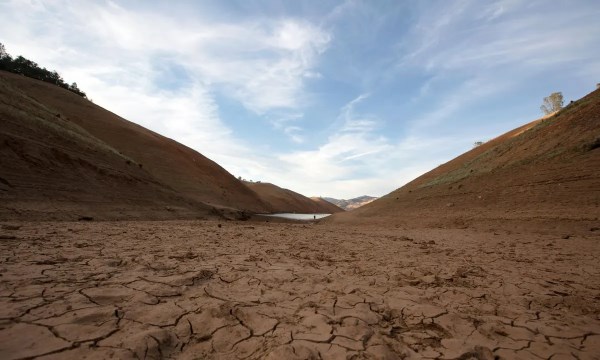
Source: The Guardian
1988 etched itself into American history as a year of scorching heat and parched lands. A relentless drought gripped the nation, its arid claws sinking deepest into the Midwest. Scorching temperatures soared past 100 degrees, wilting crops and turning rivers to dust. The combined heatwave and drought unleashed a $52 billion catastrophe, leaving a legacy of agricultural losses, wildfires, and heat-related deaths
10. Midwest Flooding
Estimated Loss: $44 Billion
Year: 1993
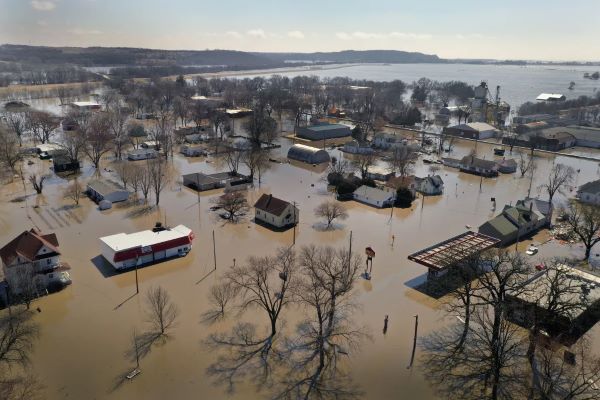
Source: The Mercury News
The Great Flood of 1993 wasn't just a flood; it was an epic natural disaster that ravaged the American Midwest from May to September. Imagine raging torrents of water surging through nine states, engulfing towns and farmland, displacing thousands, and leaving a trail of heartbreak and immense economic loss.
Comments
All Comments (0)
Join the conversation